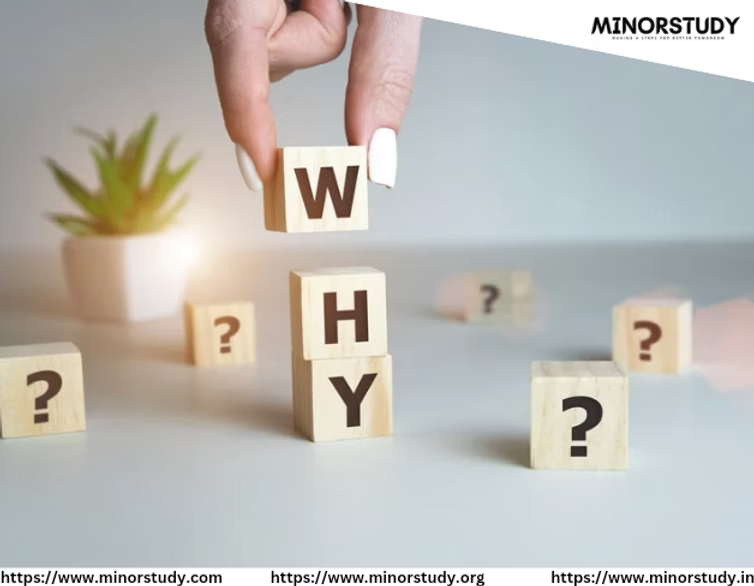📘 Introduction: Why Is Studying So Important?
Studying is the bridge between ignorance and enlightenment, confusion and clarity, mediocrity and excellence. It’s not just about passing exams or getting degrees—it’s about building a better version of yourself.
- 📘 Introduction: Why Is Studying So Important?
- 🏛️ History of Studying: From Ancient Scrolls to Digital Courses
- 🧠 Facts About Studying That Will Surprise You
- 📅 Timeline: The Evolution of Studying
- ❓ FAQs About the Importance of Studying
- 🌍 Significance of Studying in Daily Life
- 🧭 Daily Life Impacts of Studying
- 🎉 Observance: Days Celebrating the Power of Study
- ✨ Wishing: Messages to Celebrate Studying
- ✅ Important Points You Must Remember
- 👥 Importance of Studying in Society
- 🧘 Personal Importance of Studying
- 💬 Conclusion: Studying Is the Real Superpower
- ✍️ Final Words
In today’s world, where change is the only constant, studying gives you the edge to survive, grow, and succeed. Whether you’re a child in school, an adult in a job, or a retiree with curiosity—learning never stops, and studying never loses relevance.
🏛️ History of Studying: From Ancient Scrolls to Digital Courses
The concept of studying is as old as civilization itself. Here’s a brief journey through history:
🏺 Ancient Times:
Gurukul System in India: In ancient India, knowledge was passed orally in forests by Gurus.
Plato’s Academy (387 BCE): One of the first formal learning institutions in the Western world.
Nalanda University (5th century CE): A global beacon for scholars across Asia.
📜 Medieval Period:
Rise of Islamic Madrasahs, Christian monasteries, and Buddhist monasteries where scriptures and logic were studied.
🏫 Modern Era:
15th–18th centuries: Printing press revolutionized access to study materials.
19th century: Public schooling became common in many countries.
20th century: Mass literacy movements.
21st century: E-learning, digital libraries, MOOCs.
🧠 Facts About Studying That Will Surprise You
📚 Students who study regularly perform 50% better than those who don’t—not just in exams, but in critical thinking.
🧘♂️ Studying stimulates the brain like physical exercise strengthens the body.
🧠 The brain retains 10 times more information when learned through repeated studying.
🧑🎓 Self-study is directly linked to better job performance and promotions.
💼 Lifelong learners earn up to 20–40% more over their career than non-learners.
📅 Timeline: The Evolution of Studying
| Time Period | Milestone |
|---|---|
| 3000 BCE | Earliest writing in Mesopotamia for record-keeping |
| 1000 BCE | Vedas recited and studied in India |
| 387 BCE | Plato’s Academy founded in Athens |
| 425 CE | Nalanda University established |
| 1440 CE | Gutenberg invents the printing press |
| 1800s | Schools become formal institutions globally |
| 2000s | Online and distance education rise |
| 2020+ | AI, gamification, and mobile learning change the way we study |
❓ FAQs About the Importance of Studying
Q1: Is studying only important for students?
Not at all. Studying is a lifelong tool for growth, health, and success.
Q2: How does studying help in everyday life?
It improves your decision-making, communication, time management, and even emotional intelligence.
Q3: Can one succeed without studying?
Very rare. Natural talent alone doesn’t sustain success. Studying builds discipline, perspective, and consistency.
Q4: How can I make studying a habit?
Start small. Study in short, focused bursts. Make it part of your daily routine like brushing or eating.
Q5: Is there a difference between reading and studying?
Yes. Reading is passive; studying is active engagement, note-taking, and reflection.
🌍 Significance of Studying in Daily Life
Studying is the foundation of all progress—personal, societal, or technological. It teaches:
📌 Responsibility – setting goals and meeting them.
🧠 Analytical Thinking – solving problems, critical decision-making.
💬 Communication – expressing ideas clearly.
🔍 Curiosity – a thirst to know more and understand deeply.
🧘 Patience and Discipline – essential for long-term growth.
It’s not just what you study, but how it transforms your mind and life.
🧭 Daily Life Impacts of Studying
| Area of Life | Impact of Studying |
|---|---|
| Health | Understand nutrition, avoid misinformation |
| Career | Promotions, skill updates, certifications |
| Finance | Better money management, informed choices |
| Relationships | Improved empathy and communication |
| Parenting | Better understanding of children and learning styles |
| Technology | Staying updated with digital trends |
🎉 Observance: Days Celebrating the Power of Study
📚 International Literacy Day (September 8) – Celebrates the importance of reading and education.
🧠 World Students’ Day (October 15) – Birth anniversary of Dr. A.P.J. Abdul Kalam.
🌐 International Day of Education (January 24) – Recognizes education as a human right.
🎓 National Education Day (India – November 11) – In honor of Maulana Abul Kalam Azad.
✨ Wishing: Messages to Celebrate Studying
“To study is to invest in yourself. May your efforts bloom into achievements.”
“Wishing you focused minds and curious hearts—may your journey of learning be limitless.”
✅ Important Points You Must Remember
🎯 Studying is not restricted to classrooms—it’s a life habit.
🔑 It unlocks confidence, clarity, and career growth.
📱 In today’s world, digital tools make studying easier than ever.
💡 It empowers you to challenge misinformation and make better life decisions.
👥 Importance of Studying in Society
Studying contributes to society in ways we often overlook:
📖 Educated citizens vote wisely, respect diversity, and uphold laws.
⚖️ Awareness of rights and responsibilities creates better communities.
👩⚕️ Health literacy reduces medical errors and increases life expectancy.
🌱 Environmental education leads to sustainable practices.
💼 Workforce readiness boosts national productivity.
A society that values studying fosters peace, progress, and prosperity.
🧘 Personal Importance of Studying
Boosts Confidence – Knowledge makes you fearless in conversations.
Reduces Stress – Well-prepared individuals handle uncertainty better.
Sharpens Memory – Cognitive training through regular learning.
Enhances Creativity – Studying art, history, or science expands your vision.
Lifelong Adaptability – You remain agile in a fast-changing world.
💬 Conclusion: Studying Is the Real Superpower
Studying is not a punishment, it’s a privilege. It’s the only tool that equally empowers a child in a rural village and a techie in Silicon Valley.
In a world full of distractions, the ability to focus, learn, and apply knowledge is rare—and studying gives you that power.
Don’t just study for grades—study to understand, to grow, to contribute.
“Study while others are sleeping. Dream while others are wishing. Learn so you can lead.”
✍️ Final Words
Whether you’re a student, parent, professional, or retiree—never stop studying. The world is your classroom, and every page you turn or video you watch is a step toward a better you.








